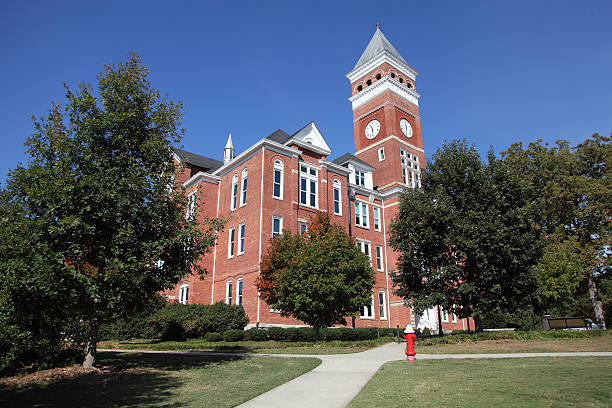Are you an international student looking to work and study in Canada? You are likely attracted to work and study in Canada because of its friendly immigration systems, post-study work rights, and post-graduation employment opportunities.
Advertisements
Canada also has some beautiful landscapes and attractive cities.
The number of international students in Canada continues to increase every year. Many of them choose to stay in Canada after completing their studies.
If you have ever had the zeal to work and study in Canada, then this article will definitely put you through.

Eligibility to Work and Study in Canada
Before an international student can study and work in Canada, the student must obtain a study permit.
Advertisements
A study permit is a document that is issued by the Immigration, Refugees, and Citizenship (IRCC) to anyone that wants to study in Canada.
To get this permit, the prospective student must present a letter of acceptance from a DLI(designated learning institution).
You must also present proof of financial support and other supporting documents from your country of origin.
When the documents are found to be valid, you can submit your study permit application. When the application is approved, you are now eligible.
You must understand and accept the terms of your study permit. In doing so, you will benefit greatly from your study abroad experience in Canada. Students who accept the terms of their study permits also have a bigger chance of being given a post-graduate work permit.
When filling out the study permit application form, you should indicate if you intend to work or stay on-campus or off-campus.
You can work as an international student in Canada if your study permit mentions the on-campus or off-campus work conditions.
You can work on-campus without a work permit only if the following conditions are met.
- If you have a valid study permit.
- If you have a Social Insurance Number.
- If you are a full-time post-secondary school student of a college, university.
“On-campus” means you can work in every building on the campus.
An on-campus employer could be any of the following
- Faculty Member
- Student Board
- A private business on the school campus.
- The School
The student can work at a library, clinic, or study facility. You will no longer be able to work on-campus if any of the following happens:
- Your study permit expires.
- If you are on authorized leave from your studies.
- If you are switching schools and not studying.
If in your study permit, the off-campus option was chosen, you don’t need a work permit.
You can work off-campus without a work permit only if the following conditions are met:
- If you have started studying
- If you have a Social Insurance Number
- If your study program is more than six months long and can lead to the award of a degree, certificate.
- If you are a full-time student at a Designated Learning Institute
- If you are enrolled in a College or University academic or vocational program.
The student and his employer must ensure that he (the student) can work off-campus without a work license before he starts working. If the student starts working off-campus without meeting the condition, he may leave Canada.
If you are on authorized leave from your studies, you can’t work off-campus. When you return to school, you can resume working off-campus.
The student can work 20 hours a week. The student can also work on more than one job off-campus.
Some study schemes include work experience as part of their curriculum. The student can apply for a co-op or intern work permit if:
- You have a legal study permit
- Work is necessary to complete your study program in Canada.
- You have a letter from your school that corroborates that all students in your program need completed work placements before getting their degree.
Evaluating the costs to Work and Study in Canada

When the authorities have approved your work and study in Canada application, the prospective student can travel to Canada to study and work.
Before traveling to Canada, the prospective international student will need to evaluate the costs of study and work in Canada in monetary terms.
Living in Canada can be very cheap compared to most other study destinations for international students.
There are many alternatives for living as a student in Canada. From living within the campus residence to apartment rental outside the campus, students can pick the living style that suits them best.
In Toronto, a prospective student should budget for at most $3,000 CAD monthly for housing fees.
In Montreal, it is around $600 CAD monthly.
Just like housing, fees for transportation and food are different for each region.
A prospective student should budget around $500 CAD monthly for food and transportation in Toronto. In Montreal, a monthly budget of around $400 CAD can be prepared.
All international students must have health insurance plans which are added to the tuition fees of most universities or colleges.
Choosing the Right University to Study
Canada has a lot of college or university institutions of different sizes and specialties. Some of them are:
- The University of Toronto is one of the Canadian schools that International students like to go to. The students choose the school for its academic greatness and active campus life. It is located in the downtown hub of Toronto.
- Universite De Montreal is one of Canada’s highest-ranking universities and a great choice for those interested in studying French! It is in the city of Montreal.
- Mcgill University has a global stature for quality. Although it is in the French region of Quebec, McGill is an English university. The city of Montreal is perceived as one of the best cities to live in as a student. The cost of living is low, and it is home to an active artistic and cultural scene.
Working in Canada after Graduation
After the international student has completed his study program, there are two ways he may be able to work full-time:
- The student had already applied for a work permit before his study permit expired.
- The student is starting a new study program.
If the student has already applied for a work permit, He can work full time if the following conditions are met:
- The students were already eligible to work off-campus during their studies.
- The student applied for a post-graduation work permit (PGWP) before his study permit expired.
- The student is waiting for a decision on his work permit application.
If the student is starting a new study program, He can work full-time if the following conditions are met:
- The student is already able to work off-campus during his previous studies.
- The student has a valid study permit or he applied to extend his study permit before it expired.
- The student received written confirmation from his current school that he completed his program.
- The student received a letter of acceptance to a new full-time study program at a DLI.
- The student will start a new program within 150 calendar days of receiving the confirmation that he completed his previous program.
Conclusion
This article has examined the processes involved to work and study in Canada as an international student, let us know in the comment box if you have any questions to ask
Advertisements






